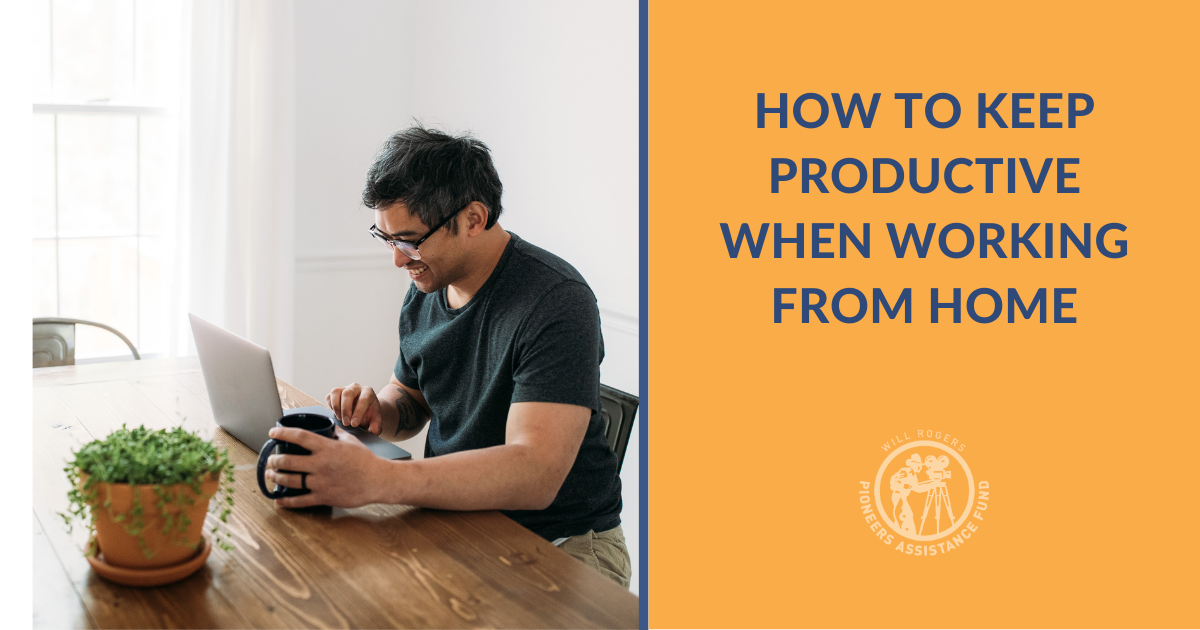

And just when you thought things were returning to normal…
“Days after filming resumed on ‘The Batman’ at studios outside London, it shut down again after the film’s star, Robert Pattinson, tested positive for the coronavirus…”
— The New York Times (Sept. 3, 2020)
Six months in, and the motion pictures industry is still reeling from the coronavirus and the subsequent economic fallout. And it’s not just the big-budget movie studios. Cancellations, delays, and schedule changes have meant most of us — veterans in all kinds of theatrical entertainment roles — are working from home in some capacity.
Expect this to continue.
It’s the same for the rest of the country: At least 42 percent of America’s working population has worked from home, full-time, during this crisis. While many of us are lucky to still have a job, working from home certainly brings its challenges. Sure there’s no morning commute, the coffee’s better, and it’s Dress-Down Day every day. But there are lots of things about our pre-COVID working lives that we miss.
Here’s how we cope…
Stay Focused

If you told us a year ago we’d be working from home, we’d be looking forward to fewer distractions, money savings (no expensive lunches!), and a much better work-life balance.
But the reality of work-from-home life is much different. The biggest issue?
A lack of focus. Without our fellow creatives around us, we struggle to concentrate sometimes. Here’s how to be more productive:
- Confine your workspace to one particular area in your home, away from children, grandchildren, pets, and other distractions. A designated place keeps your mind from wandering. “Establish water-tight psychological boundaries so you’re not constantly reminded of temptations around you (there’s chocolate cake in the fridge),” says Forbes.
- Remove yourself from other temptations like TV. Sure, “The View” might be luring, but you have work to do. And as for social media, stop checking it throughout the day. Your news feed won’t scroll itself, and Twitter will still be waiting for you in a few hours. (It’s important to stay connected though, and we’ll explain why later.)
Use Free Time Wisely
We can’t predict the future, but let’s say things are back to normal this time next year. You wake up, hit the snooze button, get in your car, spend 30 minutes in traffic, finally arrive at work, leave work, spend another 30 minutes in traffic, and get home exhausted. Then you do this all over again the next day.
That’s a lot of wasted time.
Without the morning and evening commute, you probably have a lot more free time. But what are you doing with it? You might not have this extra hour (or two) for much longer, so use your bonus time to:
- Write that movie script you’ve put off for years.
- Re-do your resume.
- Network with motion picture pros.
- Learn a new language.
- Learn a musical instrument.
- Reconnect with old friends.
Stay Connected

You might not be in a busy production office, movie studio or a movie theatre right now so it’s important to connect. A lot of people in our industry are going through a rough time right now, so reach out to fellow veterans for a quick video call. It could change their entire day.
If someone in the industry has lost their job or needs emotional support, send them our way. Here at Will Rogers, our industry-renowned financial support programs and social services provide motion picture industry veterans with a much-needed helping hand.
And, right now, that”s more important than ever.